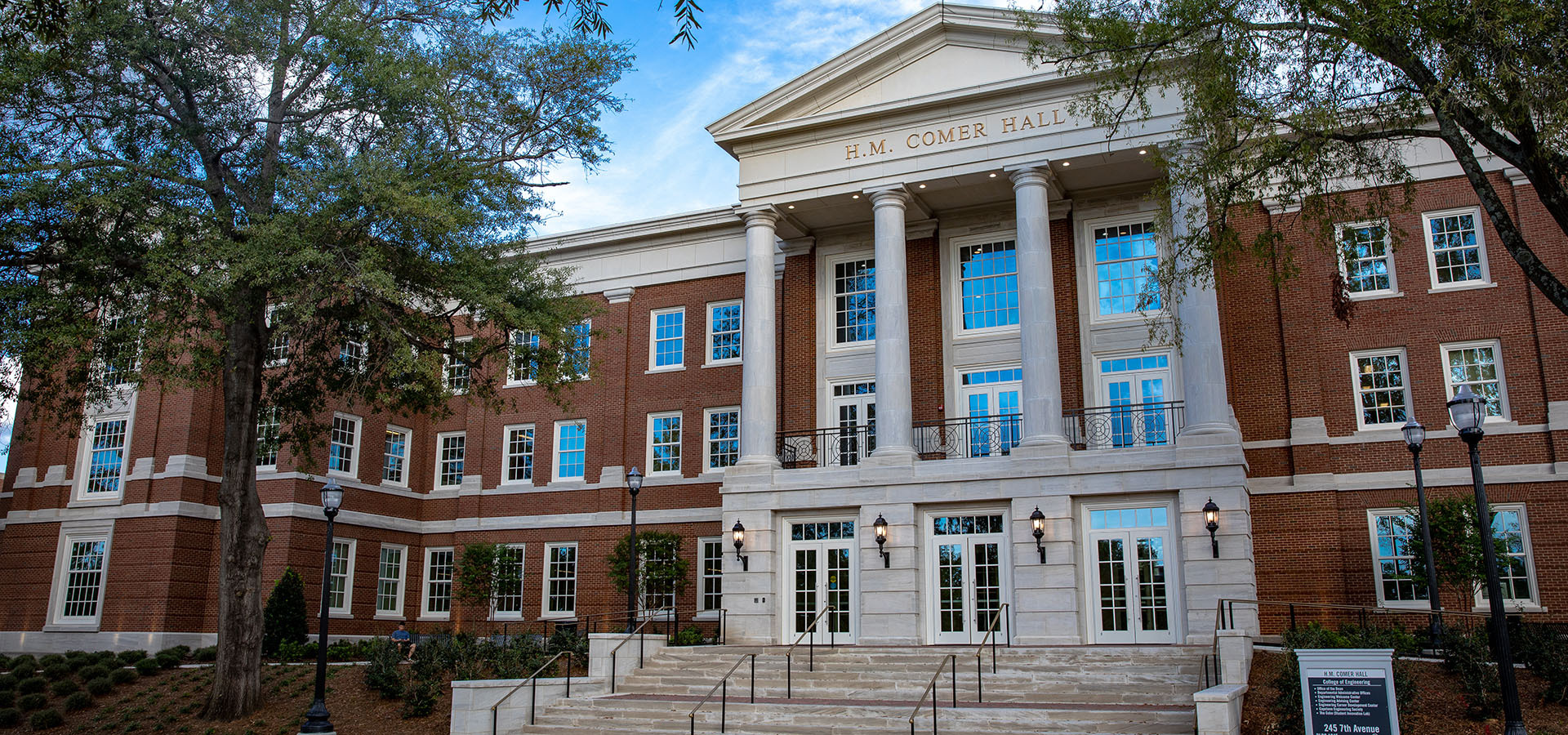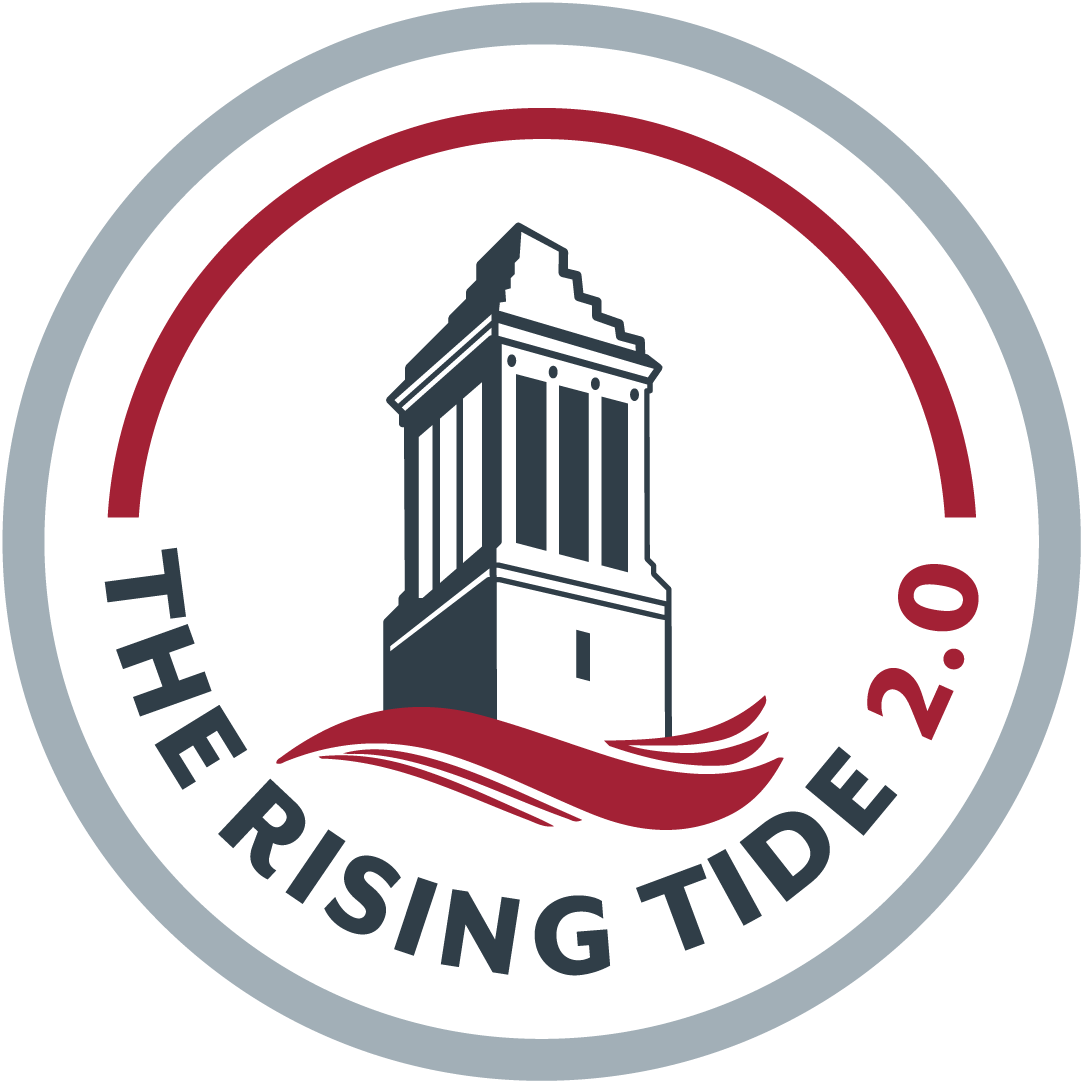Student Groups Make a Difference in the Community, Nation
The College of Engineering’s student competition teams have achieved great success in recent years and are poised to continue their efforts in new labs while also giving back to the local community and gaining invaluable experience.
Dr. Marcus Ashford, mechanical engineering associate professor, works extensively with K12 students bringing STEM projects to their classrooms with the UA groups he advises — Alabama Rocketry Association, Tuscaloosa Rocketry Challenge and Rockets and Racecars. The students in these groups are able to learn through experiential learning and their work with grade school students.
“Experiential learning, or I like to call it getting dirty, is extremely important,” Marcus said.
He added that experiential learning opportunities within these teams are useful for students when going into the competitive job market. It’s important to him to give students time and space to make mistakes because he said it’s when the most valuable lessons are learned.
“We want you to fail,” Marcus said. “You need to fail a lot. We don’t have an expression that says we learn from our successes. It goes the other way, and it goes that way for a reason.”
As the college prioritizes updating student work spaces, several engineering student teams have moved into new locations in Hardaway Hall. With the recent upgrades, Alabama Rocketry moved into the space that was once The Cube. Marcus said the lab fits the organization, which is split into three teams with older students often teaching younger ones.
“The space is large enough where we can do all work simultaneously. It’s absolutely wonderful,” he said.
He said there is a benefit to having most teams in the same area with access to the resources everyone needs, like machining. Plus, it is helpful when recruiting students and showing them what they can do at the University and how to make their interests reality.
“In Hardaway, we’ll have space for a lot of our competition teams where we’re not walking all over each other anymore,” he said.
Marcus does not use the term “outreach” when it comes to his groups’ work in local classrooms. Since the University’s name includes “of Alabama,” he said college students already belong to the community. He believes people take more ownership of their role when they are helping at home as opposed to reaching out to a different place.
“We don’t go into the community. We are a part of the community,” he said.
Tuscaloosa Rocketry Challenge is a program where undergraduate students visit every sixth-grade class in Tuscaloosa and spend a week teaching the history and physics of rocketry. They also learn how to make water rockets out of a 2-liter bottle. The top groups from each school are invited to campus to compete against each other in the challenge.
Marcus said having the sixth graders actually make a rocket instead of just teaching them lessons makes it more fun and memorable. In addition, the undergraduate students are learning just as much from teaching because they have to be knowledgeable on the subject matter while reaching the sixth graders on their level.
“Everybody is walking out of this where they’re all picking up stuff. Living it is a whole lot better experience than reading about it or launching theory about it,” Marcus said.
Similarly, Rockets and Racecars asks K12 teachers what concepts they want to teach their students. Based on these responses, the college students develop engaging lessons, often utilizing out-of-the-box techniques such as using remote control cars.
The work of his groups and the impact their efforts have had in the lives of the children they reach has been life changing for Marcus as many of the K12 students, specifically female and minority students, have told him they didn’t know engineering was an option for them prior to participating in the project.
Marcus said studies show students have a greater interest in math and science before fourth grade. At age nine, however, that curiosity wanes. He aims to find and eliminate the cause of this doubt in students’ ability to succeed in STEM fields.
He has spoken at several schools in Alabama’s Black Belt, a region of the state named for the soil, and his mission is to show children they can become engineers too.
Growing up, Marcus was challenged by family and friends to use his imagination to be inventive. Whether making a bow out of vines and sticks or a boat out of cardboard, he learned how to engineer from these projects, which often turned into competitions with other neighborhood kids.
In addition to his other activities, Marcus is a leader in UA’s Student Introduction to Engineering, or SITE, camp. During the month of July, UA hosts three group of high school students who each spend one week on campus taking classes, working on projects and visiting local factories.
Marcus works with the STEM Entrepreneurship Academy through UA’s Center for Community-Based Partnerships, which challenges students to start a business in a week; he works with Learning in Action to incorporate experiential learning into classes; and he enjoys collaborating with faculty from across the University and adapting some of their methods into his own teaching. “I could tell you a million stories on the stuff we’re doing just trying to make a bit of a difference,” he said.


